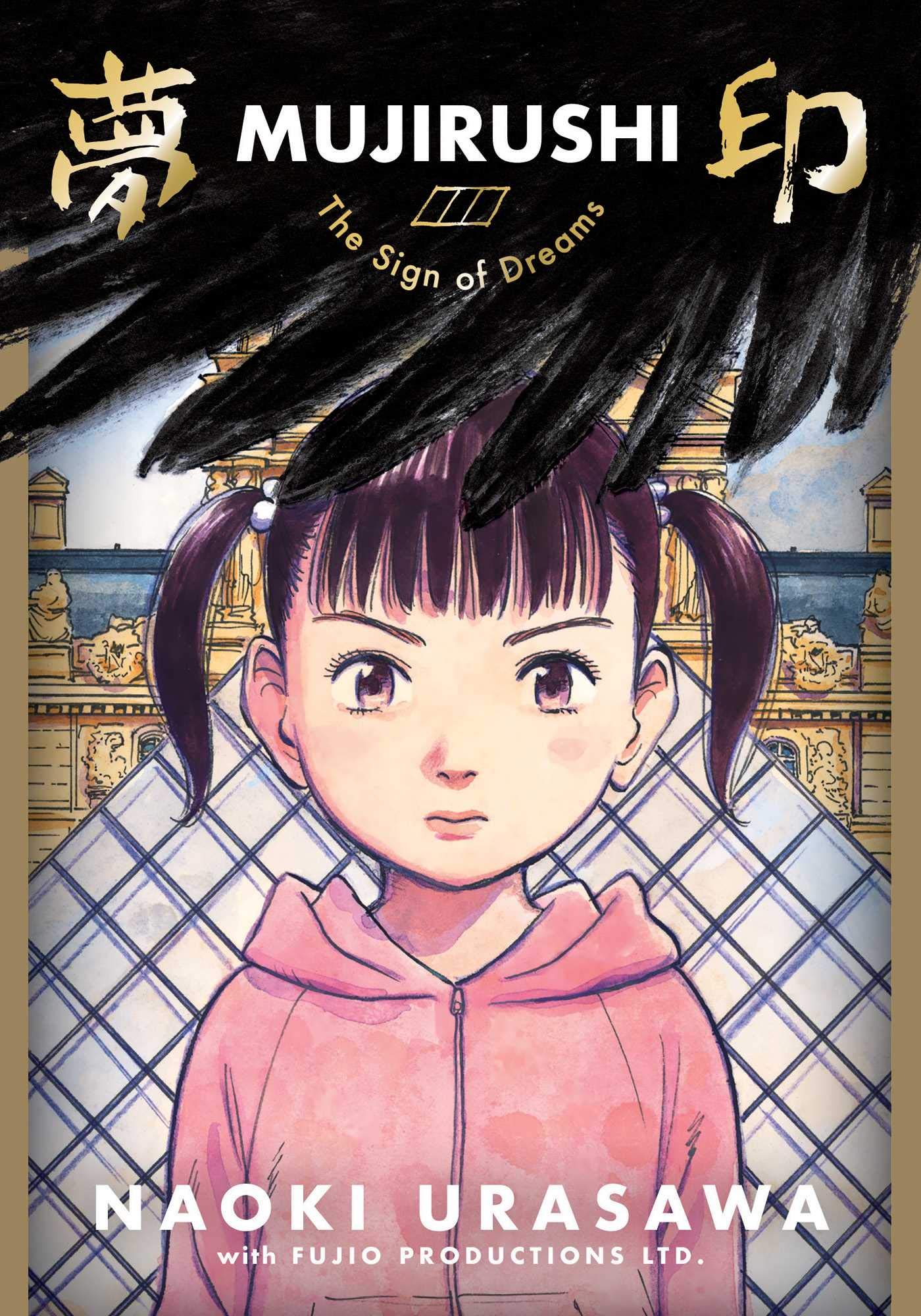
I’ve read my fair share of Urasawa Naoki. Between Monster, Pluto, and 20th Century Boys, I hold the manga author in high esteem, and generally assume I have a decent sense of his style. But I’m not sure anything could quite prepare me for Mujirushi: The Sign of Dreams.
The story centers around a father and daughter who have fallen on hard times after the dad makes a series of bad decisions. Desperate to get out of crushing debt, the two happen upon a mysterious fellow with extremely large front teeth and an overwhelming obsession with France known as the Director. This fellow convinces the father to participate in a plan that supposedly should give them both what they want, leading to a trip to France and the Louvre that only brings more unexpected turns.
It sounds like a pretty reasonable story, but one thing that makes Mujirushi different is that the Director is none other than Iyami, the most famous side character from the Osomatsu-kun franchise whose “SHEEH!” exclamation became a cultural phenomenon. As described by Urasawa himself (and even discussed in the early episodes of the modern-day revival sequel Osomatsu-san), Iyami was explosively popular in the 1960s—even more than the brothers themselves. An American equivalent would be something like having Steve Urkel show up as a central character in an otherwise unrelated movie (though Urkel did have his own France moment…)
I also want to mention that this manga features a weird female parody of Donald Trump named Beverly Duncan, whose face ends up playing a major role in the story, and it makes me wonder why Urasawa decided to throw this in. My best guess is that he simply wanted to draw Trump’s characteristic punchable grin because it makes quite the visual impact.
The manga is actually part of a collection of French, American, and Japanese comics made to celebrate the Louvre; readers might be familiar with the JoJo’s Bizarre Adventure take known as Rohan at the Louvre. When taken in this context, I can’t help but be amazed that Urasawa would weave one of Japan’s most pre-internet memetic characters into a story about French culture in the popular imagination, as if to say that the mere concepts of “France” and “the Louvre” exist in many individuals’ minds through the loud proclamations of a Francophile character. In many ways, it gives me similar vibes to 20th Century Boys and its obsession with Japanese pop culture of the mid-Showa period (Friend’s character in particular), as if Mujirushi is a story about France for the Japanese people who grew up in that period.
Mujirushi thus ends up being as much a look at how people learn of and experience France as it is the Louvre itself. In that sense, while it’s not a sweeping psychological mystery like so many of Urasawa’s titles, its intersection of nostalgia, culture, and memory fits right into his oeuvre.








